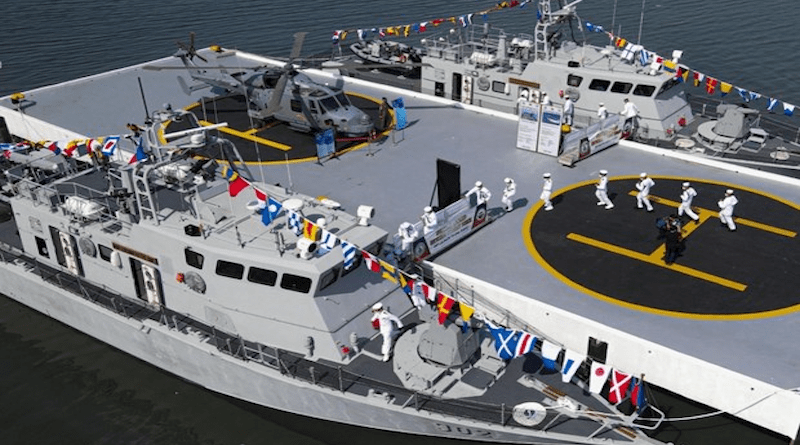Pursuing Cooperation For Common Development Between China And Philippines In South China Sea – OpEd
Despite persistent efforts of the United States to use the Philippines to expand its military access to check China’s growing connections with neighboring Asian nations, Manila shall not lose sight of the need to pursue friendship and cooperation with Beijing in order to achieve common development in the region, especially in the South China Sea, and more so in the context of the commemoration of the 10th year anniversary of the launching of China’s Belt and Road Initiative (BRI).
Though security tensions in the South China Sea are rising as a result of worsening major power rivalry between China and the United States, the Philippines can help calm the overall situation by reaffirming the imperative of implementing the 2002 Declaration on the Conduct (DOC) of Parties in the South China Sea and by accelerating the ongoing negotiation for the conclusion of the Code of Conduct (COC) in the South China Sea. Both the DOC and the COC uphold the principle of “duty to cooperate” as mandated by the 1982 United Nations Convention on the Law of the Sea (UNCLOS). Cooperation is the key to ensure peace and common development in the South China Sea.
In the DOC, all parties have the expressed intention to “consolidate and develop the friendship and cooperation” among them in order to promote “a 21st century-oriented regional partnership of good neighborliness and mutual trust” among them. This regional partnership is very important in the promotion of a common development in the South China Sea. They also agreed to exert greater efforts to promote “a peaceful, friendly and harmonious environment” in the South China Sea by exercising self-restraint in the conduct of unilateral activities that can complicate or escalate the ongoing disputes.
All parties also decided “to intensify efforts to seek ways, in the spirit of cooperation and understanding, to build trust and confidence between and among them” through the following measures:
- Holding dialogues and exchange of views as appropriate between their defense and military officials;
- Ensuring just and humane treatment of all persons who are either in danger or in distress;
- Notifying, on a voluntary basis, other Parties concerned of any impending joint/combined military exercise; and
- Exchanging, on a voluntary basis, relevant information
Pending “a comprehensive and durable settlement of the disputes”, all parties committed to pursue pragmatic cooperation in the following functional areas:
- Marine environmental protection;
- Marine scientific research;
- Safety of navigation and communication at sea;
- Search and rescue operation; and
- Combating transnational crime, including but not limited to trafficking in illicit drugs, piracy and armed robbery at sea, and illegal traffic in arms as well as international terrorism
Functional cooperation in these areas is essential for China, the Philippines and other members of the Association for Southeast Asian Nations (ASEAN) to take some decisive steps forward in order to achieve common development in the region while the COC is being negotiated.
The BRI, which also builds the path for common development, can also facilitate the implementation of the DOC and the conclusion of the COC. The implementation of the Regional Comprehensive Economic Partnership (RCEP) that the Philippine Senate has recently ratified can also reinforce the goals of the BRI to pursue cooperation for common development in Asia, unless extra-regional powers disrupt the whole process.
*Remarks delivered at the International Webinar on Pursuing Cooperation for Common Development organized by the International Department of the Communist Party of China Central Committee on 14 March 2023.
Dr. Rommel C. Banlaoi is currently the Chairman of the Advisory Board of the China Studies Center of New Era University, member of the Board of Directors of the China-Southeast Asia Research Center on the South China Sea, member of the Management Board of the World Association for Chinese Studies and President of Philippines-China Friendship Society. He also served as President of the Philippine Association for Chinese Studies from 2008 to 2022.

